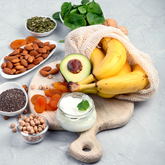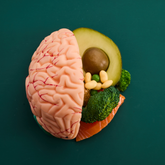In recent years, there has been a notable shift in dietary patterns, with an increasing number of individuals embracing plant-based nutrition for its touted health benefits. Beyond the ethical and environmental considerations, the science behind plant-based nutrition reveals a treasure trove of essential nutrients that contribute to optimal health. This blog aims to explore the nutritional components of plant-based diets and their positive impact on overall well-being.
Protein Power
One common concern about plant-based diets is the adequacy of protein intake. Contrary to the misconception that plant-based sources lack protein, a well-balanced plant-based diet can provide all essential amino acids. Legumes, nuts, seeds, and whole grains are rich sources of protein, supporting muscle development and maintenance.

Fiber for Gut Health
Plant-based diets are inherently high in dietary fiber, a crucial element for digestive health. Fiber promotes regular bowel movements, prevents constipation, and supports a diverse and thriving gut microbiome. Fruits, vegetables, whole grains, and legumes are excellent sources of soluble and insoluble fiber, contributing to overall gastrointestinal well-being.
Vitamins and Minerals
Plants are dense with essential vitamins and minerals that are vital for various physiological functions. Leafy greens, berries, citrus fruits, and nuts are rich in vitamin C, while dark leafy vegetables provide an abundance of vitamins A, K, and folate. Additionally, minerals such as iron, calcium, magnesium, and potassium are readily available in plant-based sources, supporting bone health, nerve function, and electrolyte balance.

Healthy Fats
Contrary to the notion that fats are detrimental to health, plant-based diets emphasize the consumption of healthy fats. Avocados, nuts, seeds, and olive oil offer monounsaturated and polyunsaturated fats, which have been associated with cardiovascular health. Omega-3 fatty acids, crucial for brain function and heart health, can be obtained from flaxseeds, chia seeds, and walnuts.
Antioxidant Defense
Plants are rich in antioxidants, compounds that neutralize harmful free radicals in the body. Berries, dark chocolate, spinach, and artichokes are examples of foods that provide a spectrum of antioxidants, helping to reduce inflammation, lower the risk of chronic diseases, and promote cellular health.

Phytochemicals and Disease Prevention
Plant-based diets are a rich source of phytochemicals—natural compounds with potential health benefits. These compounds have been linked to the prevention of various diseases, including cancer and heart disease. Cruciferous vegetables, such as broccoli and kale, contain sulforaphane, a phytochemical with potent anti-cancer properties.

In essence, plant-based nutrition offers a holistic approach to optimal health, providing essential nutrients crucial for well-being. Whether you're a plant-based enthusiast or considering a dietary shift, understanding this science is key to making informed choices for a vibrant life.
For a seamless transition, try Milky Plant—an innovative solution for making plant milk at home in just 3 minutes. With Milky Plant, you can effortlessly incorporate the benefits of plant-based nutrition into your diet, simplifying the journey to optimal health without compromising on taste or convenience.















